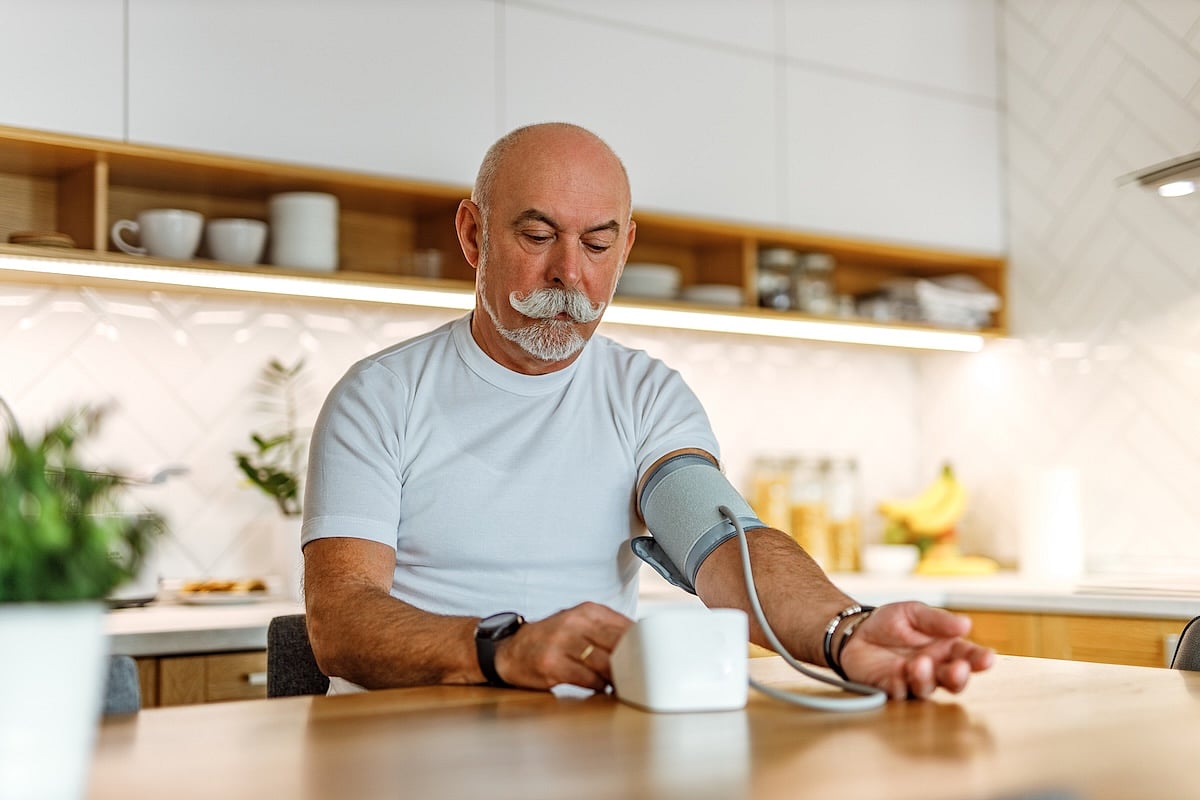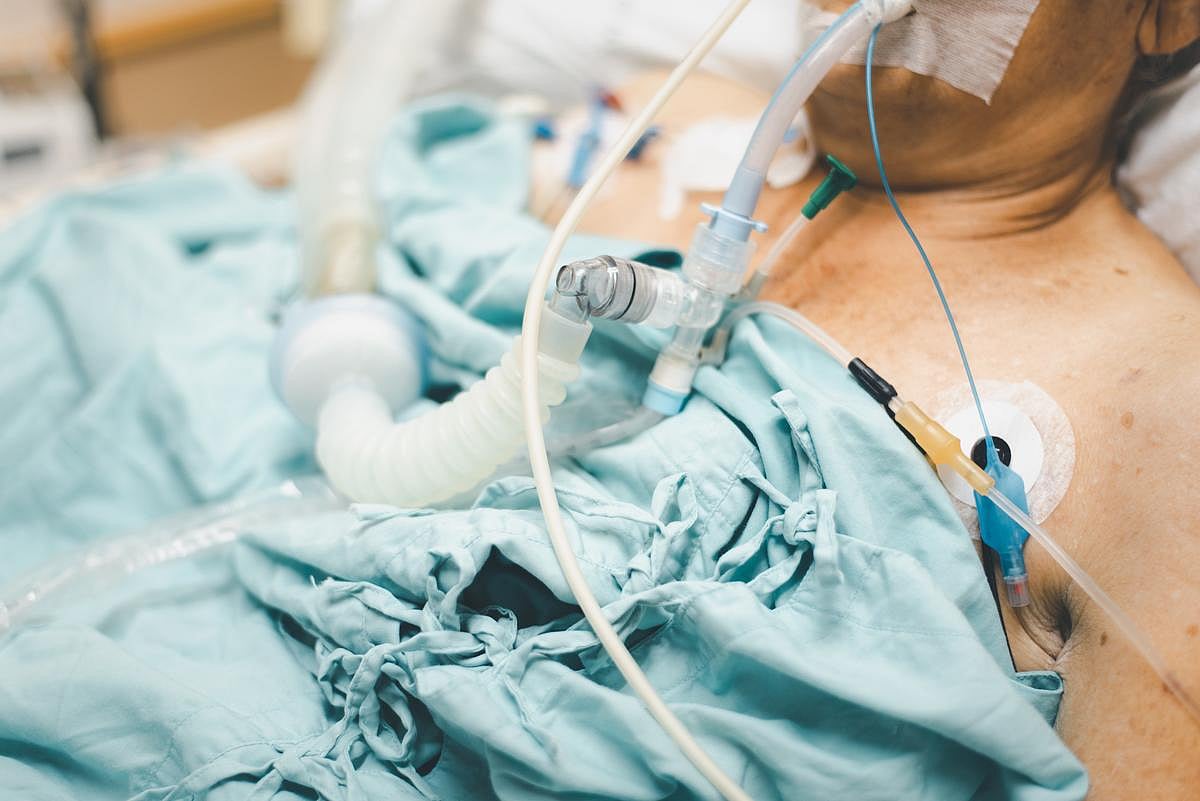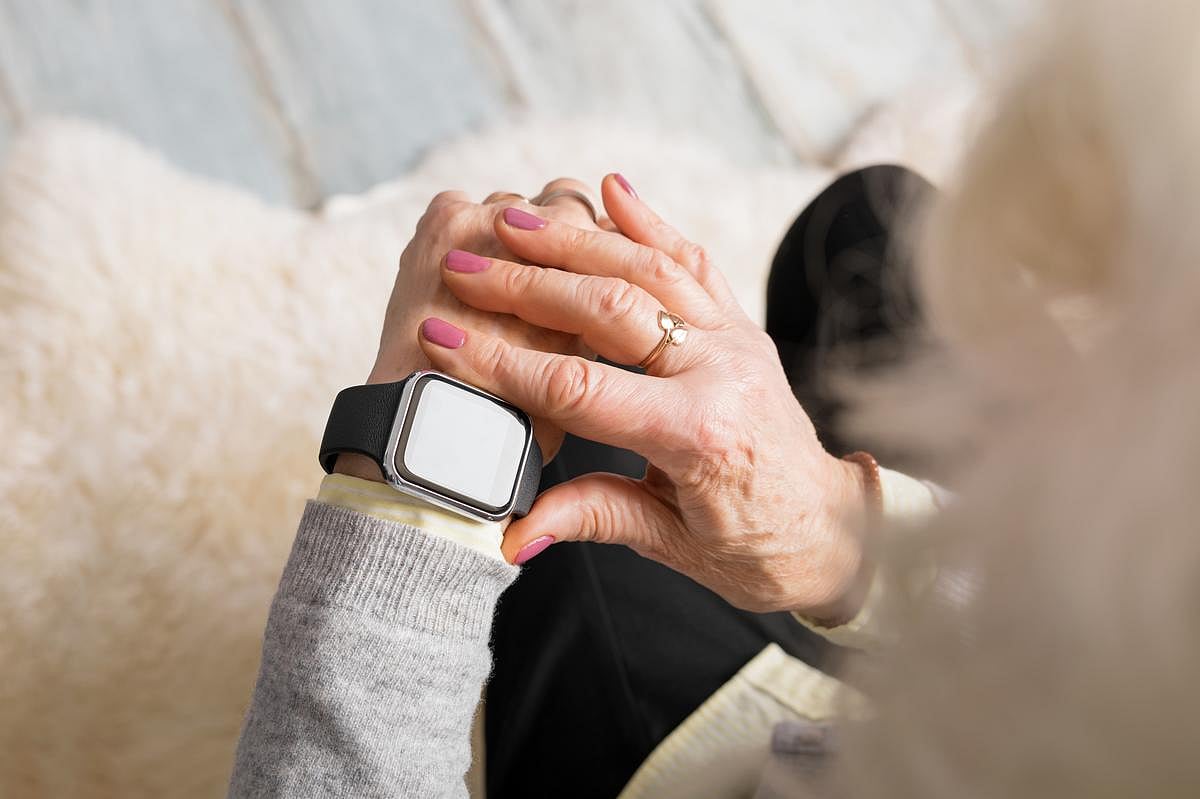Get Healthy!
Staying informed is also a great way to stay healthy. Keep up-to-date with all the latest health news here.
05 Nov
5,000 Steps a Day May Help Slow Alzheimer’s Changes in the Brain
In a new study, people with preclinical Alzheimer’s disease who took 5,000–7,500 steps a day experienced slower tau buildup and less cognitive decline over time.
04 Nov
Long-Term Melatonin Use Linked to Higher Heart Failure Risk
People with insomnia who take melatonin for at least a year face a higher risk of heart failure over time, according to the preliminary results of a large new study.
03 Nov
How Artificial Light at Night May Be Hurting Your Heart
A new study finds people exposed to more artificial light at night are at greater risk for inflammation in their arteries and heart disease.
Healthy Habits Slash Genetic Dementia Risk in Adults with Type 2 Diabetes
New research suggests that those with type 2 diabetes (T2D) and a genetic risk for dementia can significantly lower their odds for cognitive problems by adopting a heart-healthy lifestyle.
The preliminary findings — to be presented Saturday at an American Heart Association (AHA) meeting in New Orleans — show that a strong commi...
- Deanna Neff HealthDay Reporter
- |
- November 5, 2025
- |
- Full Page
Maldives Becomes First Nation to Ban Smoking for an Entire Generation
The Maldives has become the first country in the world to ban tobacco use for an entire generation, after a new law took effect Saturday.
Under the rule, anyone born on or after Jan. 1, 2007, is permanently banned from buying, using or being sold cigarettes or any other tobacco products in the country, the Maldives Health Ministry announce...
- I. Edwards HealthDay Reporter
- |
- November 5, 2025
- |
- Full Page
New Research Explains Why Children Get Easily Distracted
Kids are known for jumping from one thing to the next, even when they’re supposed to stay focused, but a new study suggests that behavior doesn’t owe to curiosity alone.
Scientists say children’s working memory just isn’t developed enough to help them stay locked in on a single task. For the study, they forced adult...
- I. Edwards HealthDay Reporter
- |
- November 5, 2025
- |
- Full Page
Could Pig Kidneys End the Transplant Shortage? First U.S. Trial Begins
A first-of-its-kind clinical trial is beginning in the United States to see if pig kidneys could help save the lives of people waiting for a human organ transplant.
United Therapeutics, the company that developed the genetically edited pig kidneys, said Monday that the first transplant in the trial has already taken place at NYU Langone He...
- I. Edwards HealthDay Reporter
- |
- November 5, 2025
- |
- Full Page
New Study Links Wildfire Smoke to Premature Births
Wildfire smoke may do more than harm the lungs.
New research shows it could also raise the risk of premature birth.
A large study from the University of Washington found that pregnant people exposed to wildfire smoke were more likely to deliver early.
The findings, published Nov. 3 in The Lancet Planetary Health, are b...
- I. Edwards HealthDay Reporter
- |
- November 5, 2025
- |
- Full Page
The Way A Man Loses Weight Matters To His Fertility, Review Says
Losing weight is considered one way to improve male fertility, but how guys drop pounds also matters, a new evidence review says.
Men who lost weight through diet and exercise did wind up with better sperm quality, even with modest weight loss, researchers recently reported in the journal Human Reproduction Update.
However, ...
- Dennis Thompson HealthDay Reporter
- |
- November 5, 2025
- |
- Full Page
AI-Guided Sperm Analysis Results In First Successful Pregnancy
The first successful pregnancy has occurred using sperm gathered with advanced artificial intelligence (AI), researchers say.
The fertility team used AI to scan the male partner’s semen sample for two viable sperm, which were then used to create two embryos and start a pregnancy, researchers recently reported in The Lancet.<...
- Dennis Thompson HealthDay Reporter
- |
- November 5, 2025
- |
- Full Page
Remote Health Monitoring Increases Doctors' Ability To See More Patients
Health care has been revolutionized by devices that can remotely monitor people’s vital signs, allowing doctors to keep tabs on things like blood pressure between office visits.
Such monitoring might also help people more easily see a family doctor, a new study says.
Practices that adopt remote monitoring technology can treat m...
- Dennis Thompson HealthDay Reporter
- |
- November 5, 2025
- |
- Full Page
Intermittent Fasting Doesn't Affect Mental Ability, Review Finds
Intermittent fasting shouldn’t dull an adult’s ability to think, remember and problem-solve, a new evidence review says.
Mental abilities like memory recall, decision making and responsiveness aren’t hampered by skipping a meal or fasting for a half-day, according to an analysis published Nov. 3 in the journal Psychol...
- Dennis Thompson HealthDay Reporter
- |
- November 5, 2025
- |
- Full Page
Even A Short Drive Impacts Your Access To A Family Doctor
Even a relatively short drive to see a family doctor can hamper a person’s access to health care, a new study says.
A family physician located as little as 19 miles away is associated with fewer office visits, less cancer screening and a higher likelihood of getting basic health care at an emergency room, researchers reported Nov. 3 ...
- Dennis Thompson HealthDay Reporter
- |
- November 5, 2025
- |
- Full Page
Super Greens Powder Sold at Sam’s Club Recalled After Salmonella Illnesses
A salmonella outbreak tied to a powdered greens supplement sold at Sam’s Club has sickened at least 11 people across seven states, and three have been hospitalized, U.S. health officials said last week.
The illnesses have been linked to Member’s Mark Super Greens Powder Supplements, which were sold in Sam’s Club stores na...
- I. Edwards HealthDay Reporter
- |
- November 4, 2025
- |
- Full Page
5,000 Steps a Day May Help Protect the Brain From Alzheimer’s, Study Finds
Getting in more daily steps may help slow early brain changes linked to Alzheimer’s disease, a new long-term study suggests.
Researchers followed nearly 300 older adults for up to 14 years and found that people who already showed high levels of beta-amyloid (an early sign of Alzheimer’s) lost memory and thinking skills more slo...
- I. Edwards HealthDay Reporter
- |
- November 4, 2025
- |
- Full Page
Top FDA Drug Chief Resigns While Under Investigation
The head of the U.S. Food and Drug Administration’s (FDA) drug division has resigned while under internal investigation, saying he was pushed out after raising concerns about how the agency planned to fast-track some new drugs.
Dr. George Tidmarsh, who joined the FDA in July, stepped down Sunday, The New York Times reported....
- I. Edwards HealthDay Reporter
- |
- November 4, 2025
- |
- Full Page
Recalled Pasta Meals Now Linked to 6 Deaths Across the U.S.
A growing Listeria outbreak linked to recalled pasta meals has now sickened 27 people and caused six deaths across 18 states, according to new data from the U.S. Centers for Disease Control and Prevention (CDC).
Two new deaths were reported in Hawaii and Oregon, the agency said. Earlier deaths occurred in Illinois, Michigan, Texas...
- I. Edwards HealthDay Reporter
- |
- November 4, 2025
- |
- Full Page
Family Recordings Might Ease ICU Delirium
A comforting voice from home might be enough to soothe ICU patients on ventilation, a new study says.
As many as 4 in 5 ICU patients on mechanical ventilation develop delirium, or sudden confusion, panic, upset and anger.
But playing recorded messages from a family member can reorient patients and help them remain calm, researchers r...
- Dennis Thompson HealthDay Reporter
- |
- November 4, 2025
- |
- Full Page
Meat Allergy Caused By Tick Bites Becoming More Common In US, Experts Say
A once-rare meat allergy caused by tick bites is dramatically increasing across the United States, researchers said.
There’s been a 100-fold increase in positive test results for the allergy, called alpha-gal syndrome, between 2013 and 2024, researchers reported last week at the American College of Gastroenterology’s annual mee...
- Dennis Thompson HealthDay Reporter
- |
- November 4, 2025
- |
- Full Page
Tobacco Still Top Cancer Killer, Despite Falling Smoking Rates
Tobacco remains the leading preventable cause of cancer death in the U.S., despite a dramatic decline in smoking, a new American Cancer Society report says.
More than 80% of lung cancer deaths are linked to tobacco, according to data from the inaugural release of the American Heart Association’s U.S. Tobacco Atlas.
Tha...
- Dennis Thompson HealthDay Reporter
- |
- November 4, 2025
- |
- Full Page
AI-Powered Smartwatch Can Detect Heart Disease
Artificial intelligence (AI) can use smartwatch data to detect heart disease, a new study says.
AI fed heart sensor data from an Apple Watch accurately detected heart problems like weakened pumping ability, damaged valves or thickened heart muscle, according to findings that will be presented Nov. 7 at the American Heart Association’...
- Dennis Thompson HealthDay Reporter
- |
- November 4, 2025
- |
- Full Page
Low-Dose Aspirin Might Benefit Adults With Type 2 Diabetes, Study Says
Low-dose aspirin is no longer universally recommended to prevent heart health emergencies, but it might help people with type 2 diabetes, a new study says.
People with type 2 diabetes who took low-dose aspirin were less likely to have a heart attack or stroke, according to findings that will be presented Nov. 9 at the upcoming annual meeti...
- Dennis Thompson HealthDay Reporter
- |
- November 4, 2025
- |
- Full Page
Kids Need CPR More Promptly Than Adults Following Cardiac Arrest
Thousands of U.S. kids each year collapse from cardiac arrest and need CPR to save their lives.
But CPR must start for them in half the time required for adults, according to results that will be presented at the American Heart Association annual meeting in New Orleans on Nov. 9.
The time window to initiate successful CPR might be ha...
- Dennis Thompson HealthDay Reporter
- |
- November 4, 2025
- |
- Full Page







.jpg?w=1920&h=1080&mode=crop&crop=focalpoint)












